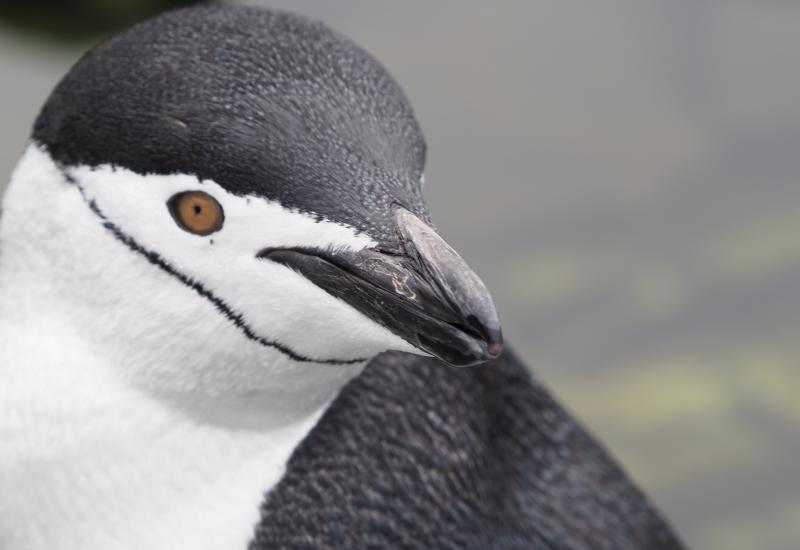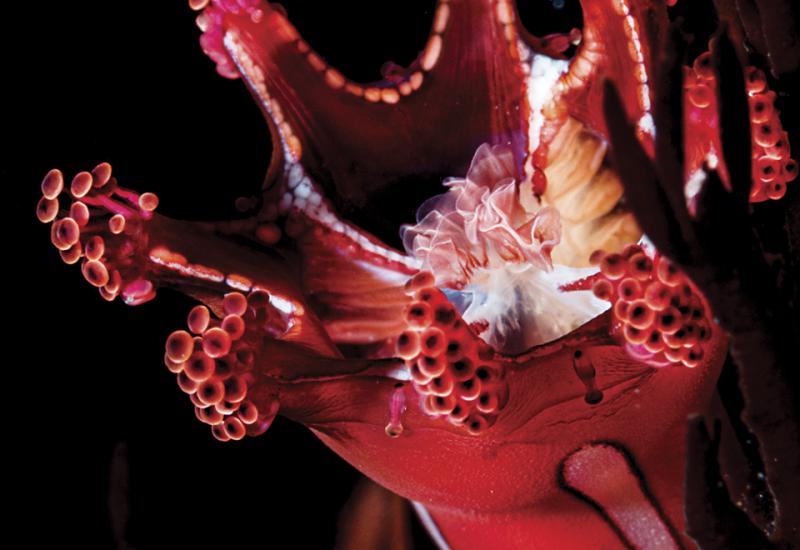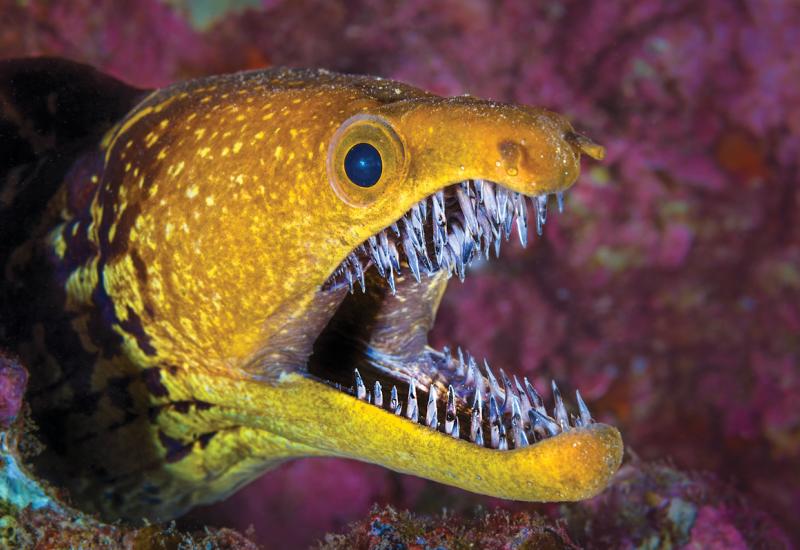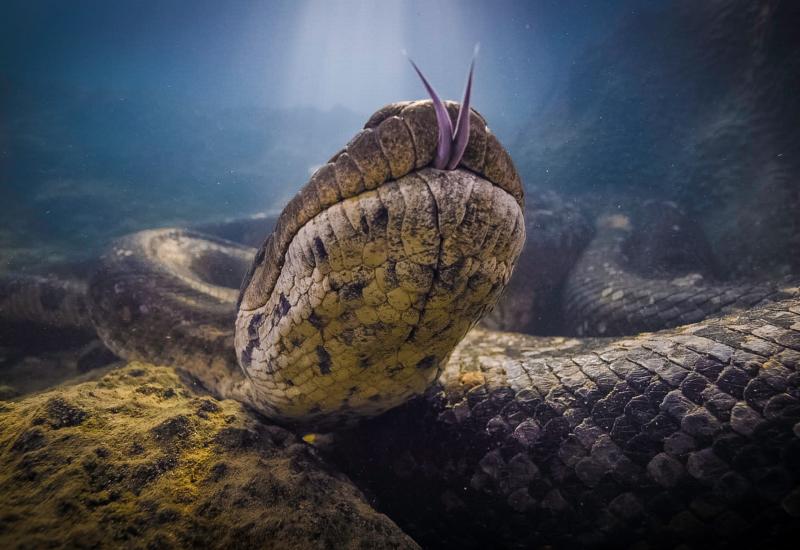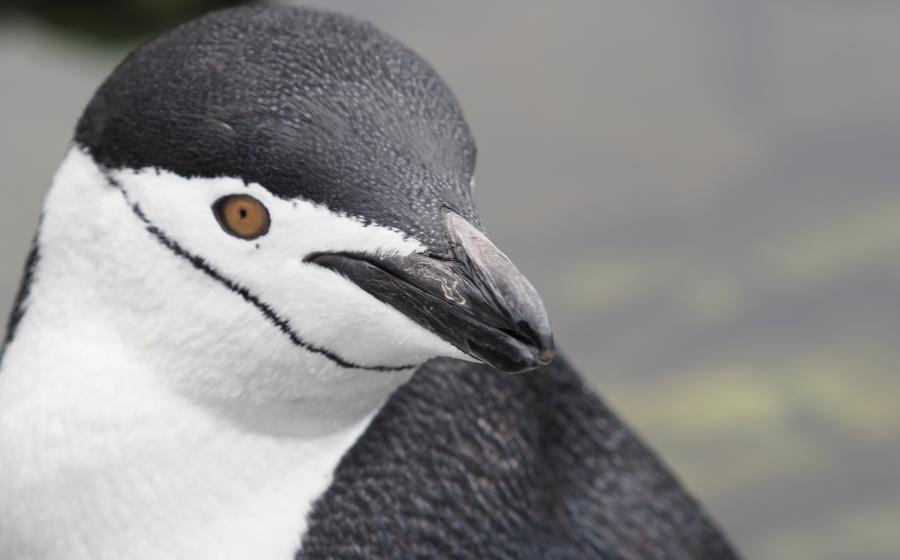Scientists Find Evidence Leopard Seals Feed on Sharks
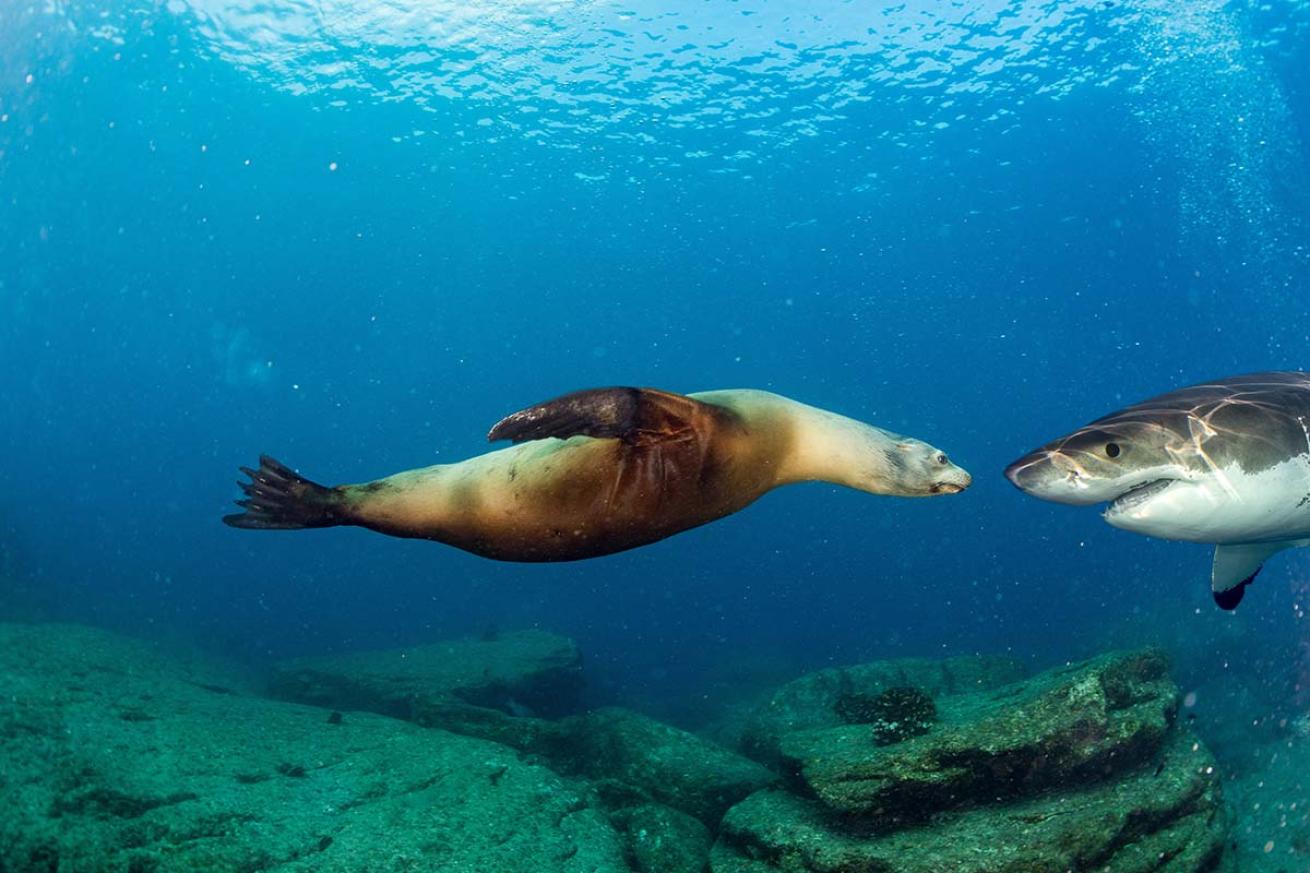
Shutterstock.com/Andrea IzzottiA sea lion faces off with a great white shark.
By observing scat and scars on leopard seals, scientists have concluded that these marine predators predate on another prominent ocean hunter — sharks.
This is the first time researchers have been able to observe that New Zealand leopard seals actively hunt sharks rather than just picking off their remains. During the study that led to this revelation, led by Krista van der Linde of leopardseals.org, researchers looked at shark remains found in the scat of the leopard seals as well as visible signs of struggle on the seals’ bodies.
“We were blown away to find that sharks were on the menu,” Van der Linde tells The Guardian.
Sharks have few natural predators (mostly other sharks), which is why researchers have been surprised at the study’s findings. However, leopard seals are already known as apex predators for their predation on penguins and fellow seals, and other observations show they are much tougher than previously thought.
“We also found elephant fish and ghost sharks were also being hunted by the leopard seals,” Van der Linde says. “These fish have large spines to help protect them from predators and sure enough, there were wounds on the leopard seals, sometimes even big spines embedded in their faces. One leopard seal had at least 14 such wounds.”
At this point, scientists are still unsure as to why leopard seals are targeting sharks. But, because of the risk involved in hunting them, researchers think there must be a big reward after a successful kill.
“There could be something nutritionally about sharks that makes them desirable, it could be sort of a treat for [the leopard seals],” Van der Linde says.
Next, the study’s authors will focus on determining whether leopard seals have historically predated on sharks or if this is a newer behavior.
“It kind of indicates to us so far that leopard seals are opportunistic predators that are coming to New Zealand and feasting on whatever they can get their jaws on,” Van der Linde says.
However, she also says it’s very rare to see one major predator feeding on another major predator. This may have implications for the food chain in the Antarctic and sub-Antarctic waters where leopard seals are found.
“A top predator feeding on another top predator is quite interesting in itself,” she says. “If the leopard seals do keep increasing in the numbers and then that affects the shark populations, we really don’t know how that will affect things.”

